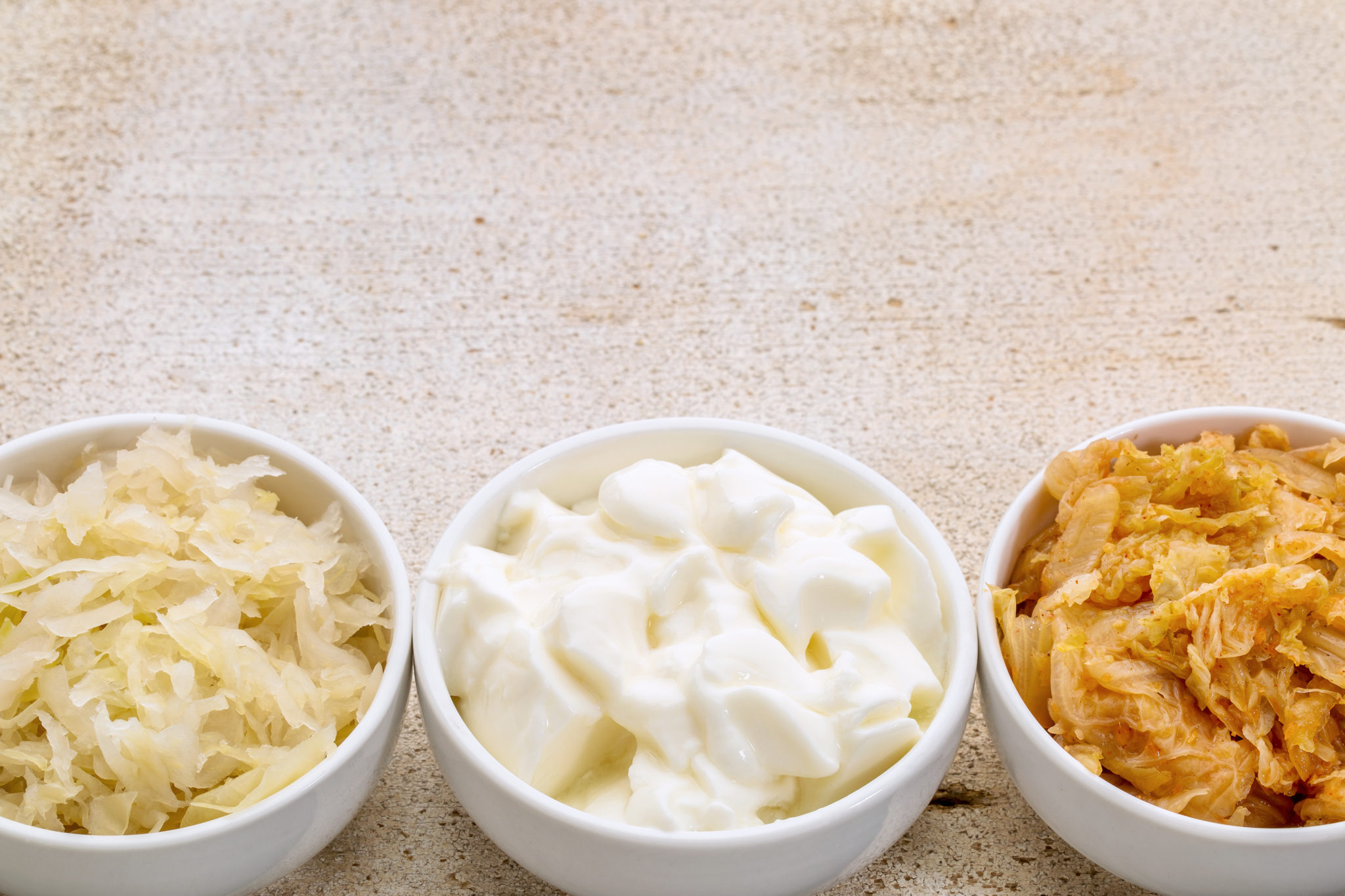Fortunately, probiotics have achieved more mainstream status in the past decade. More people than ever before have heard about probiotics. But do you really know what probiotics are and why they are so important? Probiotics are the “good” bacteria living inside your body, mainly located in your gut (the gastrointestinal tract). They are essential microorganisms that help you stay healthy. They are so important that the effects of their presence can even be traced back to early beginnings in life. It has been shown that malnourished children have high deficiencies in Lactobacillus and Bifidobacteria -the healthy bacteria- and an abundance of intestinal pathogens and antibiotic-resistant genes.
Ideally, “healthy” bacteria are acquired from the mother prior to or during delivery, providing proper development for a child’s intestinal immune system. Levels of good bacteria are also increased when a baby is breastfed, which explains why breastfed infants have fewer allergies and cases of diarrhea, as well as respiratory and gastrointestinal problems.
A healthy gastrointestinal tract is very important since 80% of the immune system is located there. If the ratio of bad to good bacteria is higher, metabolic and inflammatory conditions tend to overwhelm the body. Distortions in the gut’s microbial composition can lead to autoimmune diseases, colon cancers, gastric ulcers, obesity, type 2 diabetes, and cardiovascular disease.
Another important point to remember is that gut health is directly related to mood. Approximately 90% of the body’s serotonin is in the GI tract. Serotonin helps regulate mood, appetite, and sleep, but it is also influential in memory and learning. If you have depressive or anxious moods, it is very important to incorporate probiotics into your diet, whether that’s through what you eat, supplementation, or a combination of the two – if you are going to explore supplements, make sure to check things like these Bio Complete 3 reviews first so that you can be sure that your chosen product will deliver the results you are hoping for. A happy gut translates into a happy mind!
How’s Your Gut Health?
Unfortunately, many people present dysbiosis or alterations of their gut microbiome, which means that the ratio of microorganisms is in an unhealthy range. If you experience or consume any of the following, your bacterial population has probably been negatively affected:
- Toxins
- Pollution
- Antibiotic overuse
- Stress
- Sugar
- Chemically treated non-organic food
- Processed and junk food
- GMOs
- Soda
- Soy
- Altered meats
- Tap water
A healthy bacterial ratio is approximately 80/20. That is 80% good bacteria and 20% bad, which gives you the proper internal environment to break down food, assimilate nutrients, and fight off pathogens. It is a good idea to try to decrease or eliminate those factors that disrupt your gut microbiome.
Benefits of Probiotics
- Assist immune system development in newborns and children
- Probiotics have immune-modulating properties that boost immune cells like the IgA-producing cells, T lymphocytes, and natural killer cells
- Increase pathogen resistance
- Probiotics have antibiotic properties
- Help balance the microbiome in the gut
- Assist in lowering LDL (“bad”) cholesterol
- Help stabilize blood pressure levels
- Probiotics reduce the symptoms of eczema and allergies
- Help heal digestive disorders
- Probiotics help prevent and deal with diarrhea
- Contribute to fat loss by helping you feel fuller for a longer time and store less fat.
- Improve and regulate mood by stimulating serotonin levels which contribute to feelings of well-being and a happier state
Probiotic Food Sources

- Fermented vegetables
- Raw kefir or yogurt (non-pasteurized since pasteurization destroys naturally occurring probiotics and enzymes)
- Coconut kefir
- Kombucha
- Sauerkraut
- Kimchi
- Natto
- Kvass
- Miso
- Tempeh
Effects of Probiotic Supplementation
Besides incorporating probiotic food sources into your diet, it is advisable to supplement with high-quality probiotics. A report from the 1st Annual Conference of Probiotic Association of India (PAI) and International Symposium emphasized that probiotic supplementation has healing effects and that an unhealthy bacterial ratio can be linked to numerous gastrointestinal disorders (diarrheal diseases, ulcerative colitis, inflammatory bowel diseases, necrotizing entero-colitis, allergic responses, and lactose intolerance among others) and lifestyle conditions (diabetes Mellitus-2, obesity, etc.).
The following are some of the findings related to probiotic supplementation:
- There are associations between gut microbiota (bacteria in the gastrointestinal tract) and glucose and lipid responses in Type 2 diabetics. For instance, heavy colonization of Lactic acid bacteria and Bifidobacteria is negatively associated with cholesterol and triglyceride levels, as well as with diabetic complications.
- There are promising probiotic strains (Lp91 and Lp9) with therapeutic effects against inflammatory disorders and with strong modulators of the immune system.
- Lactobacillus helveticus MTCC 5463 has exhibited significant results in lowering cholesterol, microbial and viral activity, and modulating the immune system.
- Lactobacillus acidophilus and Bifidobacterium bifidum have shown to decrease allergic reactions on those with allergic sensitivities.
- L. plantarum has exhibited cell-toxicity decrease, as well as antibacterial and anti-inflammatory activity.
- Lactobacillus rhamnosus NCDC 17 has an antidiabetic effect by enhancing the beneficial bacteria and increasing anti-oxidative enzyme activity and the expression of anti-inflammatory markers.
- Probiotic use has been proven to relieve gastrointestinal and bowel disorders such as bloating/distension, abdominal pain, and constipation.
Supplements
If you are looking to add supplemental sources of probiotics, you can get a probiotic supplement containing a high CFU (colony-forming unit) count and strain diversity. The following are some of the great ones in the market:
- Total Restore This best-selling probiotic not only helps your body fight off gas, bloating, and digestive issues, but it also helps eliminate “junk” food cravings and unwanted weight gain. Total restore contains zinc and l-carnosine, l-glutamine, licorice root extract, and n-acetyl d-glucosamine.
- Ora Organic Probiotics This probiotic also has Prebiotics (from organic Jerusalem artichoke and organic tapioca) that fuel probiotics. It has 16 Billion CFU per serving and 6 Probiotic strains. It is certified made with organic ingredients, free of gluten, dairy, GMOs, and soy.
- Mary Ruth’s Organic Liquid Probiotics This Plant-Based probiotic is liquid and can be used by men, women, children, and babies. It has 12 Live strains of Flora w/acidophilus probiotic. This product is 100% organic, raw, Non-GMO, vegan, paleo, ketogenic, and free of gluten, wheat, corn, soy, and nuts.
Remember, a healthy gut is foundational for a healthy body and mind. Be mindful of your gut microbiome and incorporate probiotics. They have been used with positive results in relation to gastrointestinal disorders, high cholesterol, inflammatory and bacterial conditions, diabetes, and mood dysfunctions. Healthy bacterial levels can also help you to take a preventive approach towards a disease-free existence.
To a Fitter Healthier You,
The Fitness Wellness Mentor




